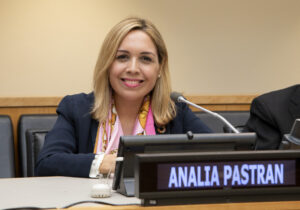COVID-19 has reshaped the way people interact on a basic human level, and with that the way we do business. Although the pandemic has brought innumerable hardships and challenges to the business world, it has also brought new possibilities and opportunities to reevaluate priorities, especially concerning climate change and sustainability.
Sustainable entrepreneurs have been promoting environmental responsibility among businesses and consumers for many years; however, businesses were initially slow to change. Given that the world as we knew it was turned upside down in 2020 by the COVID-19 pandemic, businesses now have the opportunity to change their business models to respond to both the economic crisis and changes in consumption.
Since 1970, the Earth Overshoot Day has offered a unique method of measuring the rate of consumption of Earth’s resources. This environmental marker indicates the date by which human consumption of ecological resources surpasses the amount that the planet can regenerate in the same year. After reaching the Earth Overshoot Day in a given year, humanity begins to operate at an ecological deficit. For instance, in 2000, the planet’s resources were consumed by November 1, but in 2015 the date moved up to August 13. This year, amid the COVID-19 pandemic, the Earth Overshoot Day was August 22 (Global Footprint Network, 2020).
We have to understand that sustainable entrepreneurship (responsible production) and millennials/centennials (responsible consumers) are changing the dynamics of the current marketplace (Pastran, 2019a), and that’s the opportunity we have in front of us. A good example is plastic pollution, for which the problem has become so widely known that in 2018, “127 countries had adopted legislation to regulate plastic bags” (United Nations Environment Programme, 2018).
In that sense, research on the impact of COVID-19 on consumers made by Accenture (2020) showcases a change in consumer priorities, which are now focused on purchasing products related mostly to basic needs and cleaning
and hygiene products, while nonessential categories slump. The study showed the focus of consumers on buying local and supporting local businesses as they also consider this a more sustainable option.
Responsible consumers changing the dynamics of the marketplace and the current global crisis are giving us the opportunity to rethink and reshape the production and policies for the cities we need.
Sustainable entrepreneurship
Although the concept of social entrepreneurship is becoming more well-known, entrepreneurs and researchers have not yet reached a consensus on its definition. Most definitions refer to “an ability to leverage resources that address social problems, although there is little consensus beyond this generalization” (Dacin et al., 2010, p. 38). Generally, there is much more literature on the “C” companies and their Corporate Social Responsibility areas (CSRs), which are for-profit enterprises that incorporate social and/or environmental projects as secondary business strategies; CSRs are more of a reactive response to external social issues and are not necessarily related to the companies’ core business.
Social entrepreneurship, however, has a social purpose embedded in its design that is integral to the organizational structure. Social enterprises are not traditional nonprofits, but economically self-sustaining business models that aim to generate profits (Pattinson, 2020). Many social entrepreneurs connect their enterprise’s main social purpose to the United Nations’ (UN) SDGs, which are 17 interconnected goals that are intended to benefit society globally and create a better world by 2030 (United Nations, 2020). In fact, according to the Business Commission (2017), the SDGs represent the minimum of a 12 USD trillion business opportunity.
With sustainable entrepreneurship, environmental impact and sustainability are incorporated into the business idea at its earliest stages. In general, sustainable entrepreneurship can be understood as a specific variation of
social entrepreneurship that is focused on overconsumption and climate change (Pastran, 2019c). For example, a sustainable entrepreneurship enterprise will analyze the sustainability of the products used in production (that is, are the materials eco-friendly, nonplastic, and/or biodegradable?), the impact of the products and their business on the ecosystem and ecological resources, and the social value and profitability of the business. However, it is possible to identify social entrepreneurs that are not fully sustainable; an example would be an enterprise that works with local artisans, but uses plastic in product packaging.
Since its establishment in 2016, Smartly has supported sustainable entrepreneurs in growing their businesses by helping them identify potential risks.
In particular, Smartly has aided companies with “greenwashing.” As consumers seek out products and firms that are environmentally responsible, firms have utilized advertising or labeling to indicate their sustainability or
ecological responsibility. However, “these signaling mechanisms may be exploited by some dishonest firms who claim to be green” (Lee et al., 2018, p. 1088). Smartly has taken proactive steps to stop greenwashing so as not to detract from actual sustainable entrepreneurship ventures. The following section provides positive examples of sustainable entrepreneurship in Latin America and the United States identified by Smartly over the past 4 years.
Examples of sustainable entrepreneurship
Smartly has been working with sustainable entrepreneurs in Latin America since its inception, developing a strong network to promote new methods of production. As a partner of the UN-Habitat’s World Urban Campaign,
Smartly organized two Urban Thinkers Campus events entitled “Vibrant and Urban Life in Mexico and Ecuador.” These events brought together sustainable entrepreneurs, city mayors, parliamentarians, and academic experts, among others, to discuss the best practices regarding sustainable entrepreneurship at regional roundtables. Furthermore, Smartly has been taking key steps to developing public policy and legislation indicators that will protect and boost the sustainable entrepreneurial ecosystem in Argentina, Colombia, Ecuador, Guatemala, and Mexico.
Through these experiences, international conferences, and collaboration with local legislators, we have identified various sustainable entrepreneurship partners that represent successful examples of responsible and conscious production (SDG 12—Responsible Consumption and Production); the cases are described below. Smartly supported these organizations mainly on SDG localization, communication, and network amplification.
The full version of the article is published at https://doi.org/10.1080/26437015.2021.1882915
*Article co-authored with Evangelina Colli and Claudia Poclaba, Director of Localizing the SDGs and Partnership Coordinator at Smartly.
(Photo: Dick Van Dujin).



